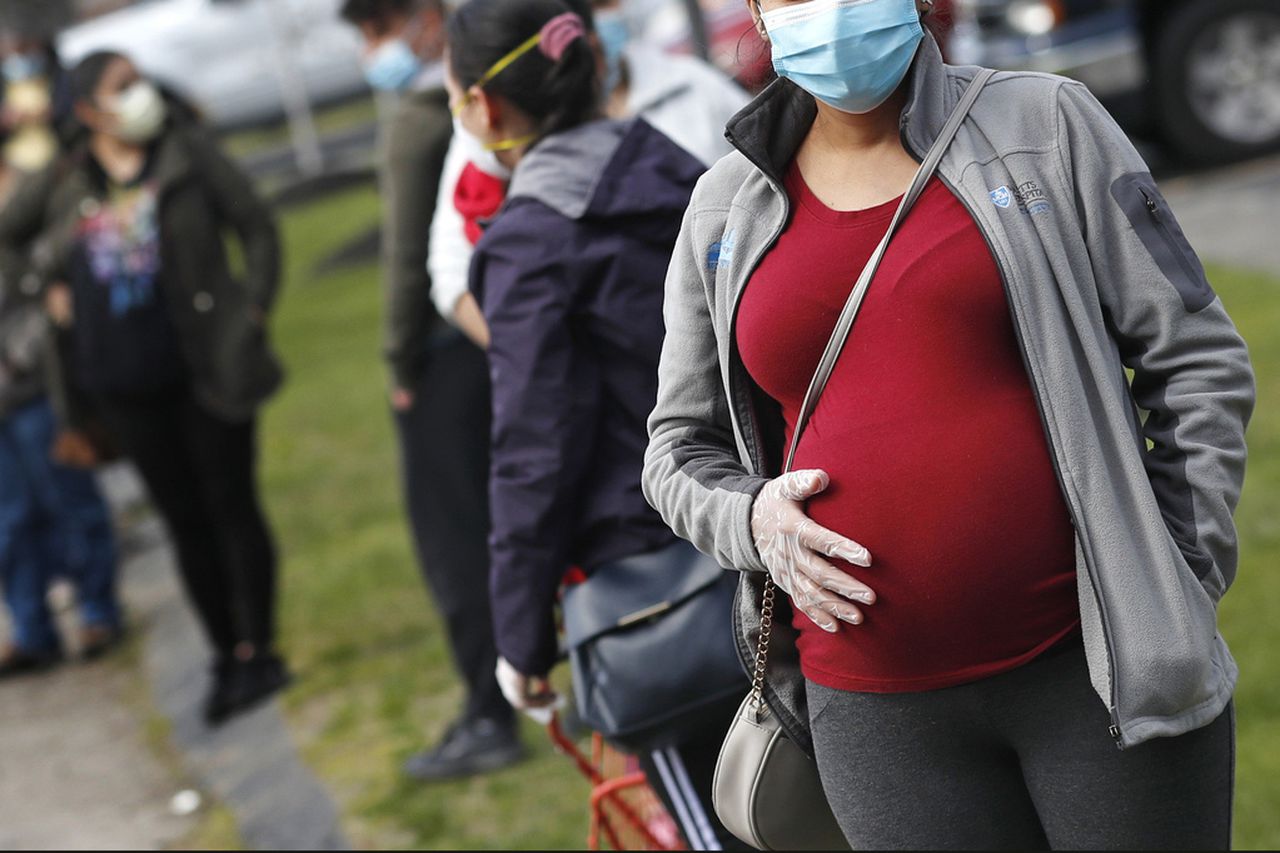Getting COVID while pregnant may increase risk of brain delays in baby boys, new study suggests
Boys born to people who contracted COVID-19 while pregnant may be twice as likely to be diagnosed with a delay in brain development, according to a new study.
Researchers analyzed the health records of more than 18,000 infants delivered after February 2020 at eight hospitals in Massachusetts, and compared them to the records of babies born pre-pandemic.
They found that males – but not females – born to mothers who had a positive COVID test during pregnancy were more likely to be diagnosed in the first year of life with a neurodevelopmental disorder, such as an intellectual disability or a delay in speech, language or motor function.
“If a mom had SARS-CoV-2 infection in pregnancy and had a male child, her 12-month-old was 94% more likely to have any neurodevelopmental diagnosis,” Dr. Andrea Edlow, co-lead author of the study and a maternal-fetal medicine specialist at Massachusetts General Hospital, told NPR.
The new study adds to a large body of research that has found links between people who contract an infection while pregnant and their infants’ increased risk of developing neurodevelopmental disorders like autism spectrum disorder and schizophrenia. For example, a 2015 Swedish study of 2.3 million births found a 30% increase in risk for autism spectrum disorder among mothers who had been hospitalized for an infection during pregnancy.
The danger to the fetus isn’t from coronavirus itself; viruses rarely pass from a pregnant person to a developing fetus. Rather, the risk to the fetus comes from an infected pregnant person’s immune system response.
When a person contracts a virus, the body works to fight it off by producing proteins to regulate the immune system. But in a pregnant person, those proteins can cross into the placenta surrounding the fetus and cause inflammation in the fetus’ brain.
It’s a risk that disproportionately affects male infants whose mothers were infected with the virus that causes COVID-19, said Edlow in a statement.
This is because male fetuses are more vulnerable to adverse exposures in utero, a finding from previous research that’s also backed up by this new study, she said.
It’s too soon to definitively link maternal COVID exposure with a child’s diagnosis of autism spectrum disorder or other neurodevelopmental disorder. The study’s authors say more research is needed to better understand possible links.
Ultimately, co-lead author and psychiatrist Dr. Roy Perlis told NPR, “Most children of moms who have COVID during pregnancy won’t have neurodevelopmental consequences even if there is some increase in risk.”
